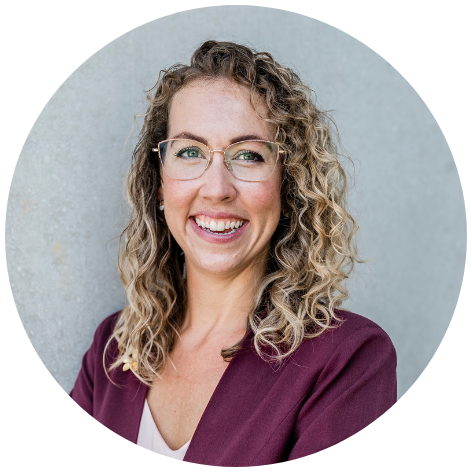Male Allyship Training
Do you know what an ally is? Do you know how to be a better colleague and leader for women at work? Do you know why all of this matters for well-being, talent recruitment/retention, and performance?
The first step to successful male allyship is education, which includes “unlearning” as much as acquiring new information. Because the concept is new and the process is not always easy, we’ve designed a novel, evidence-based training to arm potential allies with the knowledge and skills to be successful.
Across five sessions, participants will learn relevant facts and figures, how to identify (often subtle) bias and problematic defaults, reflect on their relevant motivation and experiences, acknowledge their potential fears and responsibilities, and practice how to implement these soft skills via hard practice.
Watch the video below to learn more about allyship, why it is important for businesses, and what you can do to become an ally.
For custom offerings and/or offerings in (Swiss) German with our partners, Pirmin Meyer and Konrad Weber, see below.
Course Objective
This course aims to contribute to the recognition and promotion of male allyship as a powerful tool to foster greater gender equity in the workplace.
Target Group
We welcome working men and people who identify as men who are interested in learning about gender equity and motivated to better understand what they can do in their organizations.
Programme Type
The training has a blended learning format (online and on site). The first and last modules are completed online, at participants’ own pace. Modules 2 to 4 take place on site (either Zurich or St. Gallen). The training includes an education part, groups discussions and practical activities. All learning materials and refreshments during breaks are covered.
Your benefit
By participating in this evidence-based program you will have the opportunity to improve your knowledge and awareness on diversity and inclusion as well as develop skills to interrupt gender bias and support aspiring female leaders.
Programme Overview
Part 1 (online)
Introduction to diversity and inclusion key concepts
The goal of this session is to increase knowledge and awareness of the importance of diversity, equity and inclusion. We will start discussing the obstacles that aspiring female leaders face in Switzerland and discuss how gender bias at the workplace negatively affects both men and women. Then, we will talk about why male allyship in needed.
Part 2 (on site)
Fears and responsibilities of becoming an ally
Men might be afraid to talk about gender topics because they think they don’t have legitimacy or because they fear making mistakes. Having zero-sum beliefs (the perception that “gains for one group” necessarily involve “losses for other groups”) can also limit allyship action. The goal of this session is to discuss the obstacles of allyship and understand that men’s actions towards gender equity are legitimized.
How can men empower women
In this session we will identify specific behaviors that allies can do to reduce gender inequities, both at an interpersonal and an organizational level. Moreover, given that confronting sexism is not easy, we will practice what can be done when we observe sexism at work.
Speaking with but not for women
Not all allyship action is useful, indeed, when men engage in paternalistic or dependency-oriented help, their efforts might backfire. The goal of this session is to understand and practice the type of help that would be valued.
Part 3 (online)
Check in for impact and integration
Participants will be able to review and reflect on the contents learned.
Contact

For more information or questions, please contact:
Eugenia Bajet Mestre
Programme Manager and Research Assistant
Prof. Dr. Jamie Gloor
With 15+ years of experience across 4 continents, Asst. Prof. Dr. Jamie Gloor is an award-winning speaker, teacher, and scholar, most recently winning the Latsis Prize for the top scholar under age 40 at HSG. Her research is featured in Academy of Management Review, Journal of Applied Psychology, Harvard Business Review, and The New York Times. She and her team craft courses, articles, workshops, and keynotes spanning management, economics, and psychology on the topics of diversity, leadership, humor…and more.
Would you like to have an allyship program in your organization?
In partnership with Pirmin Meyer and Konrad Weber we can offer customized organizational offers both in German and in English.
Pirmin Meyer
Pirmin Meyer is a qualified lawyer and has 18 years of experience in the insurance industry in various functions. Most recently, he was responsible for Public Affairs at Zurich Insurance Switzerland for 8 years. His experience in large companies, non-profit organisations and politics allows him to see things from different perspectives. As an independent strategy consultant, he helps individuals and organisations adapt to change.
As father of two sons, he has been involved in gender equality issues for over 10 years. Since the birth of his first son, he has worked 80% of the time. As co-president of WE/MEN, he is committed to gender equality. With the support of the board and a community of more than 200 people. Because joint engagement of men and women as allies has a more sustainable and powerful impact.
Konrad Weber
Konrad Weber is a strategy consultant and coach in the field of digital transformation. For more than 15 years, he has worked as a bridge builder between content and technology. He advises management boards on the development and implementation of new strategies and processes.
The topic of equal rights drives him on many levels: As a strategy consultant, he work on how diversity leads to better corporate success and more innovative solutions. As a citizen and board member of WE/MEN, he supports how men can get involved in favour of more women. And as the father of a young daughter, he is committed to ensuring that she can grow up in a world with more equality.
This training is part of research funded by the Swiss National Science Foundation. By participating in the training you will also participate in research projects of Prof. Dr. Jamie Gloor and Eugenia Bajet Mestre (more information available upon registration). We are grateful for SNSF financial support, which also allows us to offer this evidence-based training at a reduced rate.










